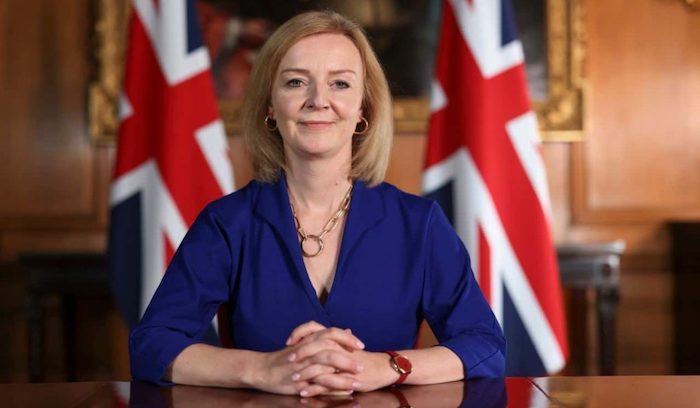To mark her first week in office, new British Prime Minister Liz Truss said on Thursday that home fuel prices would be frozen for two years.
The government reaffirmed its commitment to its constitutionally enshrined target of achieving net-zero carbon emissions by 2050, saying it would assess progress toward the goal to ensure it takes into consideration the requirements of consumers and companies.
The increased cost of wholesale energy, compounded by a supply crunch in the wake of Russia’s invasion of Ukraine, is expected to result in an 80 percent increase in gas and electricity bills for homes in the coming month.
With inflation reaching a 40-year high of 10.1% and expected to grow further, businesses whose bills are not capped have warned they may go bankrupt if costs continue to rise at such a rapid pace.
Truss and incoming finance minister Kwasi Kwarteng both vowed that the country’s massive investment in the network would pay off in “significant advantages” for the economy, despite the fact that the government estimates the project will cost tens of billions of pounds.
According to their statement, this would reduce inflation by 4.5–5%.
Furthermore, they said that the restriction on fracking, a contentious technique used to extract fossil fuels, would be lifted, and that more oil and gas drilling permits will be issued in the North Sea.
British energy security is at risk because of “decades of short-term thinking on energy,” according to Truss. The country relies largely on gas to meet its energy demands.
‘Exceptional difficulties require extraordinary solutions,’ she declared, vowing that the United Kingdom will never again face such a predicament.
Kwarteng said people and businesses “can now breathe a massive sigh of relief” because of the freeze.
Just two days after officially succeeding Boris Johnson as prime minister, Truss faces a problem that threatens to define her premiership: the cost-of-living crisis, which has prompted extensive strike action over pay.
Truss announced that annual energy costs for the typical British home would be capped at £2,500 ($2,872), a reduction of £1,000 from the previous target set for October.
A freeze will be in place for commercial and nonprofit energy users, as well as public institutions like schools and hospitals, for a period of six months.
In order to compete with Britain’s Covid era furlough employment scheme, analysts say the proposal, which will likely be in place at the next general election scheduled in 2024, could top far over £100 billion.
Truss has acknowledged that the government will compensate energy suppliers for the price discrepancy, but he has not provided an estimate of how much this could cost the public until Kwarteng releases his mini-budget later this month.
Former Shell employee Truss has dismissed demands for imposing windfall taxes on energy firms whose profits have grown on the basis of rising wholesale prices.
Although she had previously opposed consumer subsidies as part of her bid to succeed Johnson, her stance has since changed.
She said that the new ceiling was arrived at by temporarily excluding green taxes that normally add around £150 to annual bills.
The prospect of worsening public finances already damaged by emergency Covid spending has stoked worry on the financial markets as a result of the need to pay for the freeze through increased borrowing.
Tuesday marked the first day since 2014 that the UK 10-year borrowing rate had risen above three percent on bond markets, and the value of the pound against the dollar fell to its lowest point since 1985.
After onshore drilling for shale gas caused seismic tremors in northern England, the fracking moratorium has been lifted, despite Truss’s Conservative party’s promise to keep it in place in 2019.
She predicted that “gas might start flowing in as little as six months” if the prohibition were lifted.
However, analysts have expressed skepticism about the impact on bills, considering the length of time required to begin production and the potential amount of gas it may yield.
In a March article, Kwarteng estimated that it could take up to a decade to extract enough gas via fracking. However, restarting the process raises concerns about its impact on the environment.
Truss, like Johnson, promised to expand Britain’s use of nuclear power and other renewable energy sources.
The net-zero review, she said, would “ensure attaining the aim is not laying undue difficulties on businesses or consumers” and would be completed by the end of the year.
The government has ruled out a public education campaign to encourage people to reduce their energy consumption, and the new support package does not include any measures to improve building insulation in the United Kingdom, which has historically high rates of energy leakage.
